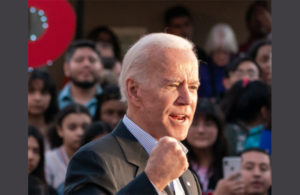
[Image courtesy of Biden for President]
In the latest move targeting Big Pharma, the Biden Administration has signaled its intent to target the pricing of dozens of prescription drugs. In a recently announced Fact Sheet, the Administration announced a strategy under the Inflation Reduction Act to focus on 48 Medicare Part B drugs that have raised prices faster than inflation. This initiative requires pharma firms to pay rebates to Medicare, which could translate to savings of $1 to $2,786 per dose for beneficiaries. The administration notest that it estimates more than 750,000 seniors to use the medications the act covers.
The Inflation Reduction Act is the backbone of Biden’s drug pricing policy, mandating rebates from pharma firms if their prices increase outpace inflation. The legislation also gives Medicare the ability to negotiate the price of a number of drugs. The law also includes a significant cap on out-of-pocket costs, ensuring that seniors never pay more than $2,000 annually for their drugs under Medicare Part D. It caps insulin costs at $35 per month.
According to the Department of Health and Human Services (HHS), 48 Medicare Part B drugs raised their prices faster than inflation in the last quarter of 2023 alone. As a result of the Inflation Reduction Act, these companies will now have to refund Medicare. This is projected to save some beneficiaries between $1 and $2,786 per drug dose.
Over the past four quarters, a total of 64 drugs saw price hikes surpassing inflation levels – qualifying them for mandated rebates under the new statute. One medication in particular, Signifor, used for an endocrine disorder, outpaced inflation every single quarter. From January 2024 onwards, Medicare patients using Signifor stand to save approximately $311 per monthly dose.
The administration also announced an initiative to ensure the domestic production of essential medicines. The U.S.’s reliance on foreign producers of drug ingredients was a theme during the pandemic when supply chain disruptions resulted in drug shortages.